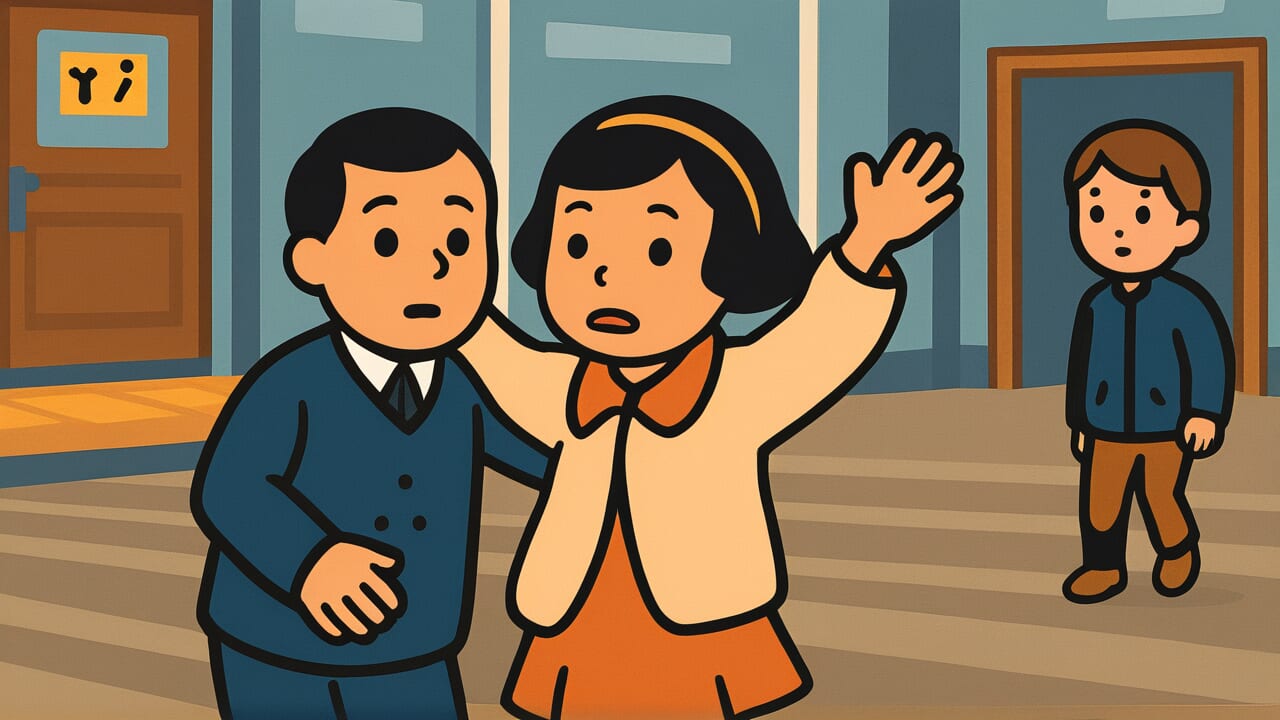How to Read “Even a snotty-nosed kid will grow up in time”
Hanatare kozō mo shidai okuri
Meaning of “Even a snotty-nosed kid will grow up in time”
This proverb means that even a young child with a runny nose will eventually become a fine, mature adult if they take the time to go through each stage of growth step by step.
People use this saying when they see young people or beginners who are still inexperienced and unreliable.
Even if someone can’t do much now, there’s no need to rush. The proverb offers encouragement and reassurance that growth will surely come with time and proper stages.
The heart of this proverb lies in the phrase “shidai okuri” (in time, step by step). It’s not about jumping ahead quickly.
Instead, it’s about going through each stage steadily to build real strength. Today’s world often demands immediate results and quick success.
But this proverb teaches us that true growth needs time and stages.
It doesn’t reject immaturity. Rather, it sees immaturity as the starting point of growth, embracing it with a warm perspective.
Origin and Etymology
No clear written records explain the origin of this proverb. However, we can make interesting observations by looking at the words that form it.
“Hanatare kozō” means a young child with a runny nose. In the old days, there were no tissues like today.
Young children commonly played with their noses running. This image symbolized someone who couldn’t yet take care of themselves, representing immaturity.
“Shidai okuri” is the core of this proverb. “Shidai” means order or stages.
“Okuri” expresses moving forward as time passes. Together, these words describe progressing gradually through stages.
This expression likely emerged from Japan’s traditional apprenticeship system and family business inheritance culture.
In the world of craftsmen, people valued the long process of starting as an apprentice, learning skills over many years, and becoming a master.
No matter how inexperienced a child might be, they will surely grow if given time to go through proper stages.
This belief reflects the warm gaze and faith of our ancestors.
This proverb expresses the Japanese view of growth, teaching the importance of developing steadily and patiently through proper stages without rushing.
Usage Examples
- That new employee might become a department manager someday—even a snotty-nosed kid will grow up in time
- My son can’t do anything now, but even a snotty-nosed kid will grow up in time, so I’ll watch over him patiently
Universal Wisdom
The proverb “Even a snotty-nosed kid will grow up in time” contains deep insight into human growth.
Why was this proverb created and passed down through generations? It captures a universal truth: human growth is never linear and always goes through stages.
No matter how excellent someone becomes, they weren’t perfect from the start. Everyone experiences an immature period, makes mistakes, and grows over time.
The most important understanding this proverb offers is the hope that “who you are now isn’t everything.” People are beings who change and grow.
What you can’t do today might be possible tomorrow. Our ancestors knew that humans have potential.
With time and proper stages, everyone has the power to bloom.
At the same time, this proverb recognizes the human tendency to rush. We often want immediate results.
But true growth has stages that cannot be skipped. If you skip the basics and jump to advanced levels, things will eventually fall apart.
Moving forward step by step, steadily, is what builds real strength.
This teaching encourages those who are growing. It also warns those who are teaching.
Don’t blame immaturity. Accept it as part of the growth process with tolerance. That’s the wisdom that truly nurtures people.
When AI Hears This
This proverb about immature children growing through stages remarkably matches the concept of the “Zone of Proximal Development” proposed by psychologist Vygotsky.
The core of this theory is that there’s a “growth zone” between what children can do alone and what they can do with help.
Interestingly, research found that the width of this zone determines the speed of growth.
The most effective method is giving children tasks slightly above their current level and gradually reducing support.
Like the process of removing training wheels from a bicycle, reducing support step by step promotes independence. This is exactly the essence of “shidai okuri” (growing in time).
Even more noteworthy is the delicate balance of timing and amount of support.
Withdrawing support too early leads to failure. Withdrawing it too late creates dependency.
Vygotsky said optimal support means helping today with “what they’ll be able to do alone tomorrow.”
The word “shidai” (stages) in this proverb actually contains sophisticated educational theory.
Neither pushing someone away all at once nor holding their hand forever works best. Gradual independence support is the method most suited to human growth mechanisms.
Lessons for Today
This proverb teaches modern people that growth requires “proper order” and “necessary time.”
Today’s society demands quick results. On social media, you see others’ success and might feel anxious about falling behind.
But remember this: everyone was once a “snotty-nosed kid.”
What matters is valuing the stage you’re in now. If you try to skip basics and jump to advanced levels, you’ll eventually hit a wall.
Rather, there are things you can only learn at your current stage. Questions you notice because you’re a beginner.
Difficulties you feel because you’re inexperienced. All of these are nutrients that help you grow.
This proverb also offers important insights for those in teaching positions.
When you feel frustrated with a subordinate’s or child’s immaturity, recognize the stage they’re in. Help them prepare to move to the next stage.
That’s true education.
Don’t rush. Don’t compare yourself to others. Value each step you take now.
Your growth moves forward through your own unique “shidai okuri”—your own time and stages.



Comments